
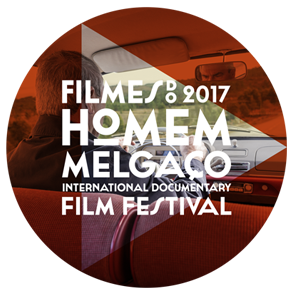
Participants

Abi Feijó
Director, Producer, Professor of Animation Cinema and Director of the House Museum of Vilar. PhD from University of Fine Arts of Porto (80). Internship at the National Film Board of Canada (85), where he directs his first film. Founder of Filmógrafo (87), Casa da Animação (01), Ciclope Filmes (02) and Quinta Imagem (12). Director of the following films: How Calm it is (85), Time of Darkness (87), The Outlaws (93), Portuguese Fado (95), Stowaway (00) and Our Lady of the Presentation (15) among others, which received over 40 mentions and awards. Worked as Producer on (since 97): The Night (99), Tragic Story with Happy Ending (05) and Kali the Little Vampire (12) by Regina Pessoa, Amélia & Duarte (15) by Alice Guimarães and Mónica Santos. The produced films have received about 95 awards and mentions. Tutor in several Animation Film workshops in Portugal, Spain, France, Italy, Israel, Scotland, Poland, Brazil, Mexico, Lebanon and China, especially with children (since 85) and young people. Professor at Catholic University of Porto (99-01), ESAP (02-16), Na Tainan National University of the Arts (Taiwan) (06-09), ESAG Guimarães (since 2009) and University of Algarve (12-13), at BAU - Centro Universitário de Diseño of Barcelona (15-17). He also serves as President of ASIFA - International Animation Film Association (00-02) and Vice President of ASIFA Workshop Group (95-01). Co-author of the interactive manual Teaching With Animation (www.animwork.dk/twa). Nowadays Abi has been running the House Museum of Vilar – the Moving Image - (since 14) and producing the animation short films: Uncle Tomás and the Accounting of Days by Regina Pessoa, in co-production with ONF / NFB Canada and Les Armateurs (France) and also Ride, by Paul Bush, a co-production with Ancient Mariner, UK.
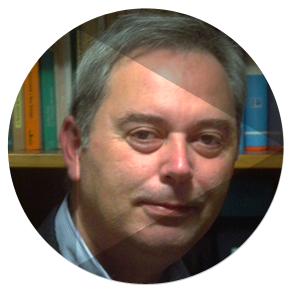
Albertino Gonçalves
Albertino has a master’s degree in Sociology from the University of Paris V-Sorbonne (1981) and a doctorate in Sociology from Universidade do Minho (1994), where he aggregated in the Sociology disciplinary group (2005). He has been teaching, since 1982, subjects in the field of social sciences methodology and cultural sociology, lifestyle and the arts. Coordinator of the post-graduation courses at Institute of Social Sciences, a member of the founding committee of Casa Museu of Monção and researcher at the Studies Center Communication and Society.
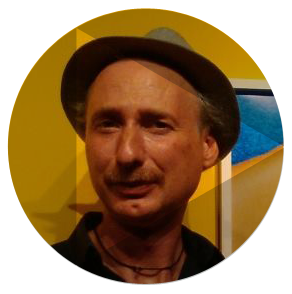
Alessandro Negrini
Multi award winning Italian film director and poet. Born in Turin, he defines himself as a film director by mistake. He spent much of the late 1990s traveling Europe writing and in 2001 he moved to Ireland. His work deals with social exclusion and resistance and combines documentaries, fiction and poetry. Before becoming a film director he worked as a school janitor, a salesman for an unknown circus, an illegal museum guide and deliveryman of yellow pages. His previous film Paradiso, commissioned by the BBC, has won 18 international awards in festivals around the world and has been selected in more than 50 film festivals. His new film ‘Tides’ has received 6 international awards since its release last june.
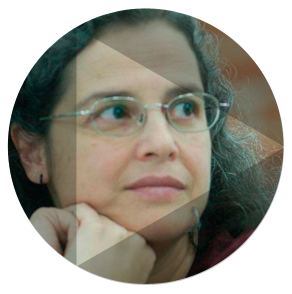
Alice Fátima Martins
Professor at the Faculty of Visual Arts of the Federal University of Goiás, in the Degree in Visual Arts and the Postgraduate Program in Art and Visual Culture. CNPq Productivity Fellow. Researcher at the Advanced Program of Contemporary Culture PACC / UFRJ (2009-2010). PhD in Sociology (UnB, 2004); Master in Education (UnB, 1997). Author of the books Saudades do futuro: a ficção científica no cinema e o imaginário social sobre o devir (Ed UnB, 2013), and Catadores de sucata da indústria cultural (Ed UFG, 2013). She has developed the research project Other filmmakers, with funding from FAPEG and CNPq, where she investigates the different processes of directing, distribution and relation with the public of low cost cinema works.
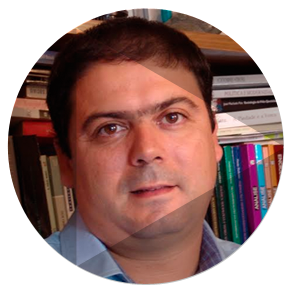
Álvaro Campelo
Álvaro Campelo is an anthropologist and university professor. With research and publications in different fields, ranging from theories and cultural identities to the anthropology of art and religion, has dedicated himself for over 20 years to the study of mountain societies, anthropologies of space and nature. In the field of visual anthropology, he wrote about the "Spring Act" by Manoel de Oliveira, and was scientific coordinator of 5 documentaries.
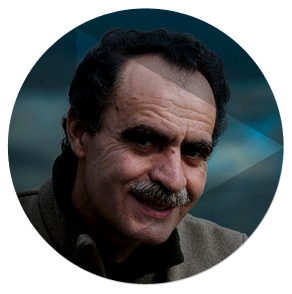
Álvaro Domingues
Álvaro António Gomes Domingues (Melgaço, 1959) is a geographer, PhD in Human Geography and associate professor at the Faculty of Architecture of the University of Porto. Teaching activity: Teacher of the integrated master's and doctoral program in Architecture and PhD Course at FAUP; Member of the Scientific Council at FAUP; Professor of the Master’s degree "Project of the Urban Environment" (FAUP/FEUP); Teacher of PhD Course of Architecture of the University of Coimbra.; Professor of the Summer Courses at the Serralves Foundation; Visiting professor at the Federal University of Rio de Janeiro; Visiting Professor at the University of Granada. Regularly collaborates with other universities, foundations, Público newspaper, cultural and professional associations, whilst developing a regular activity as a lecturer. Research fields: Urban Geography, Urban Planning, Landscape, Territory, Cultural Policy. His recent books include: Vida no Campo (ed. Dafne, Porto, 2012), A Rua da Estrada (ed.Dafne, Porto, 2010) and Políticas Urbanas II (Calouste Gulbenkian Foundation, Lisbon, 2012 with Nuno Portas and João Cabral)
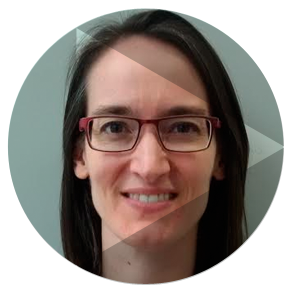
Ana Camps
Born in Barcelona, Spain, in 1974. Degree on Sociology and Studies on Humanities, Art and Cinema. Erasmus scholarship in Manchester Metropolitan University in 1999. Participation in the project Barcelona-Sarajevo Joint Summer University in 2000. Worked in the educational filed from 2001 in Consorci Universitat Internacional Menéndez Pelayo de Barcelona - Centre Ernest Lluch. Worked as a personal assistant to Director in Institut Català de les Empreses Culturals depending on Generalitat de Catalunya until 2010. Coordinator of Education Department of Filmoteca de Catalunya since 2013 till now.
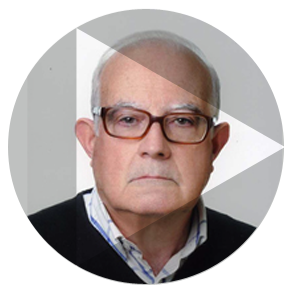
André de Oliveira e Sousa
Born in Porto, where he attended a civil engineering course at the local University and practiced professionally as a secondary school teacher. He was vice-president of the Cineclube do Porto and president of the cinema circles of Porto and Luanda. He writes about cinema for the newspapers Jornal de Notícias (as official collaborator), Primeiro de Janeiro, Jornal do Centro, Público and others. In 1973, he founded the "Cineclube" magazine with Henrique Alves Costa, for which he would write, over two consecutive numbers, an extensive interview with filmmaker Jean Rouch, whose first visit to Porto and north of the country he helped to mediate. This initiative was sealed with a long friendship. In 1977, he appealed for the founding of a new cineclube in Porto, the Cineclube do Norte, which attracted 600 members in less than a year. This film club originated the proposal, approved at the National Meeting of Cineclubes in Espinho, for the creation of the respective federation, whose installation committee he integrates before becoming, for over 20 years, president of the Portuguese Federation of Cineclubes and director of the magazine "Cinema", its communicational organ. Coordinator in the organization committee of the Congress of the International Federation of Cineclubes held in Porto. He was invited to countless communications and lectures, both in and outside Portugal, and to act as president of two juries, constituted by the Ministry of Culture (IPC), to provide financial support for feature films in co-production with Europe and Portuguese language countries. He was a member in many other juries, namely CINANIMA, FIFAC (Coimbra), Figueira da Foz Festival (distinguished by the local town hall), Kiev Festival (Molodist) and Ourense Independent Film Festival. André has collaborated with the Fafe film festival and recently was a lecturer in cinema of intervention at the Faculty of Psychology of the University of Porto and collaborated in the homage promoted by the Faculty of Letters of the same university to the filmmaker and writer Margueritte Duras, presenting "Hiroshima, my Love", which had been exhibited for the first time in Portugal (and clandestinely) at his initiative.
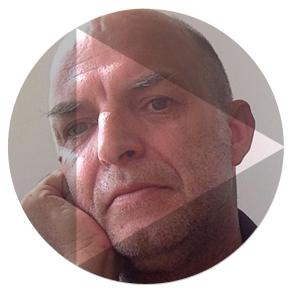
António Medeiros
António Medeiros (1963), anthropologist and professor at ISCTE, author, among others, of the book Two Sides of a River, which was the result of research and field work done in Galicia and Minho.
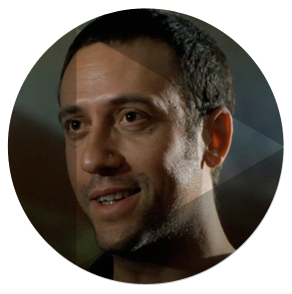
Aser Álvarez
Aser Álvarez (Bande, 1976) holds a degree in Political Science and Journalism with a postgraduate degree in Audiovisual Communication. Founding member of Arraianos Multimedia Productions. Director, Screenwriter and Executive Producer of the documentary film "100% CEF, a biography of Celso Emilio Ferreiro", winner of national and international awards; and of "Looking for Bill Viola," a video creation for a pedagogical project of approach to contemporary art through audiovisual language. He also directed a number of award-winning advertising works. "Sisyphus Confused. Works and sayings of Francisco Leiro "is his most recent feature-length documentary, after three years of filming between Cambados, Madrid and New York. Director, Screenwriter and Executive Producer of "Chunks of Life", a new audiovisual format developed for CRTVG. Member of the Galician Academy of Audiovisual and the Spanish Academy of Sciences and Television Arts.
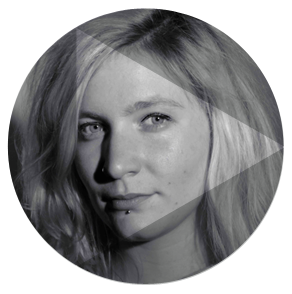
Cecilia Bozza Wolf
Was born in 1989 in Trento (Italy). In 2012 she graduated in Art, Music and Drama, at the University of Padua and wrote her degree thesis on Federico Fellini, entitled “Il Dolce Mezzo”. In particular, it is based on the films “La Dolce Vita” and “8 1/2”. It was published by the Foundation Federico Fellini located in Rimini. She is currently doing a master’s degree in Drama, Film and New Media at the University of Padua where, from 2011 to 2013, she worked as a camera operator for some local companies and the private network TV200. In the same period she produced two short institutional videos in collaboration with the municipality of Padua and worked as a cinematographer on a documentary about John Strasberg and his training method for actors. Since 2013 she has been working on “Hard Rock Mountain”, a project for a documentary about young mountain rock bands in northern Italy. In January 2014 she enrolled at Zelig, a Documentary, Television and New Media School in Bolzano, where she was expecting to graduate in 2016. Over this period of time she also did an internship in the directing department of the film “Mountain” by Amir Naderi.
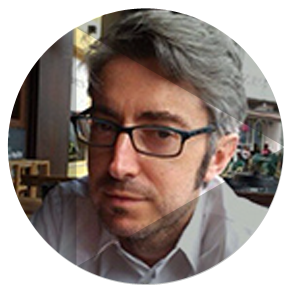
César Souto Vilanova
(1975) Holds a degree in journalism from the University of Santiago de Compostela. In 1998 begins to work in TV Galicia, covering information for the various news programs of the chain. Since 2006, specializes in conducting in-depth report on various aspects of current political and social Galician, Spanish and International, first in the program Rec House and later in Reporters. "The Drowned Days” represent his first foray into the documentary genre.
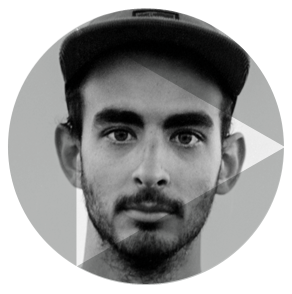
Dani Millán
He moved to Barcelona after high school to study film directing at ECIF (2010). He specialized in cinematography and graduated in 2013. During those years he worked with different companies traveling while he also collaborated on his school’s short films. In 2014 he decides to return to the Canaries and spends nearly two months traveling around the islands and documenting the whole experience. Almost a year later, this will become his first film, Maresía, with theIndependent Collective Project Islas Canarias. In 2016 he starts a trip through Senegal and Gambia where he makes his first documentary short film: El Viaje del Libro.
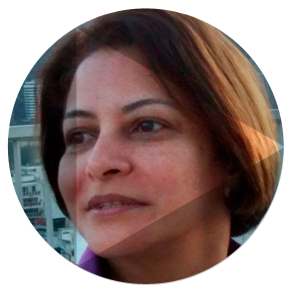
Denise Machado Cardoso
Denise Machado Cardoso is an anthropologist and historian, currently living and working in Belém do Pará, northern Amazonia. She is a PhD (2006) in Social and Environmental Development and holds a Masters (2000) in Social Anthropology from the Federal University of Pará. She is a member of the Research Ethics Committee at the same university and coordinates the Arthur Napoleão Figueiredo Laboratory of Anthropology (LAANF) developing studies about social relations on gender, ethnomuseology, indigenous health, education and cyberculture. Coordinator of the Visual and Image Anthropology Studies Group (VISAGEM) and the Group of Studies on Indigenous Populations (GEPI).
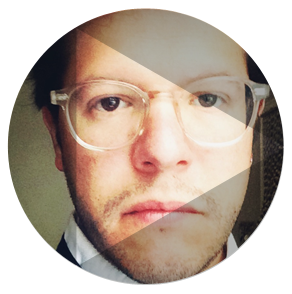
Eduardo Brito
(1977) Holds a master's degree in Artistic, Museological and Curatorial Studies from the Faculty of Fine Arts of the University of Porto, with the thesis Claro Obscuro - Around the Representations of the Museum in Cinema. He is a member of the Art and Intermedia Nucleus of i2ads at FBAUP. He was the Coordinator of Reimagining Guimarães, a photographic archive project during Guimarães 2012. Author of the photography series "Terras Últimas" (CCVF, 2010), "Uma Variação Veneziana" (Pianola, 2014), text for "As Orcadianas" (Grisu, 2014), and the videos Antropia (2009), Linha (2012), Terras Interiores (2013, with Joana Gama, from the music of Carlos Marecos), Volta e as Simultâneas (with Rita Faustino, 2013 and 2015). He wrote the screenplay for the films O Facínora (Paulo Abreu, 2012) and A Glória de Fazer Cinema em Portugal (Manuel Mozos, 2015).
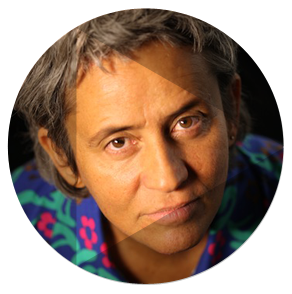
Graça Castanheira
Was born in Angola in 1962 and is a documentary director. She graduated in 1989 at the School of Theatre and Cinema of Lisbon, where she is currently a teacher of Documentary Cinema and Direction. She was awarded at DocLisboa with an honorable mention for the film “Logo Existo” and is a founding member of Apordoc – The Portuguese Documentary Association.
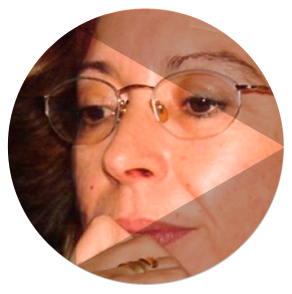
Graça Lobo
Graça Lobo holds a Masters degree in Cultural Management with a Thesis in Public Education for Cinema. She was Coordinator of the Project Group for the National Cinema Plan, in 2012/13 and 2013/14. Co-author and coordinator of the Youth / Cinema / School Program for the Regional Education Board of Algarve since 1997/98. Co-author of the Option Subject in Cinema Program of the 3rd cycle of Basic Education. She was a primary and high school teacher between 1975 and 1997 and supervising professor in Teachers’ formation at Escola Superior da Educação of Algarve from 1993 to 1996. Visiting professor at the University of Algarve teaching Cinema subjects between 1994 and 2001.Graça is an accredited trainer by the Council for Continuing Education of Teachers, and has held dozens of training courses in Film Literacy since 1999. Vice president of the Faro film club from 1996 to 2008. Coordinator of several publications in the field of cinema. She made presentations in National and International Congresses.
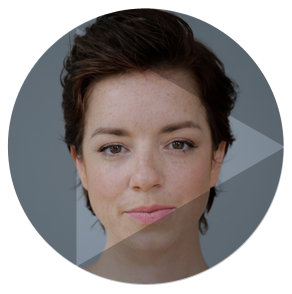
Inga Bremer
Was born near Frankfurt/main in Germany. After various visits to foreign countries, Inga started drama school in Cologne, but moved on to join the filmacademy in Baden-Wuerttemberg to become a director in 2004. For her film “Goodbye Kutti” Inga got nominated for the German Human Rights Film Award in 2010. When she returned from a year abroad at the International Film Academy EICTV in Cuba, Inga started shooting the award-winning film “Perfect Girls” funded by MFG Baden-Wuerttemberg. Inga is one of four founders of the film production company Soilfilms. Together with her partners she produces and directs documentaries, commercials and fiction films.
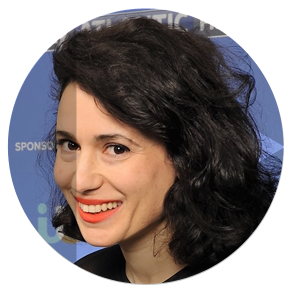
Iris Zaki
Since moving to London in 2009 to study documentary filmmaking, Iris has made two artist documentaries, won a Grierson award and other international prizes and screened her films at numerous festivals and universities all over the world. In 2013 she commenced a practice-based PhD which explores her own innovative documentary filmmaking technique, focusing on closed-communities. She is a guest tutor at Royal Holloway, University of London.
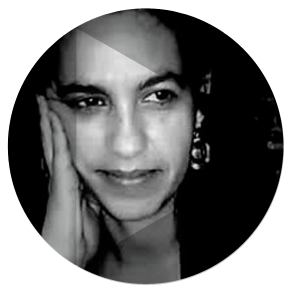
Isa Catarina Mateus
Isa completed the curricular part of the Master's Degree in Contemporary Art History at Universidade Nova de Lisboa (2000) and a Degree in Portuguese Studies - field of scientific specialization at the University of Algarve (1998). Has the Course of Musical Education and piano, by the Regional Conservatory of Algarve (1992). She did radio. Founding member of RADIX, within the Ministry of Culture. Editorial coordinator of Sul Magazine. Teacher of Music Education, Civic Education and Portuguese History at basic education. Lecturer of Contemporary Artistic Movements in Higher Education. Instructor of Visual Communication and Photography and Video and author of the teaching materials for the curricular unit of psychoanalysis at the University of Algarve. Trainer in Art History and Educational Technologies, Audiovisual Media in Actions for the Continuing Education of Teachers. She was a member of the artistic training team, field of Literature and Writing, in the project ‘I see a monument from my window’ from the Regional Directorate of Culture of Algarve. Coordinator of the training for the National Cinema Plan, instructor in the Initiation, Continuity and Follow-up Training Actions of Teachers and author of the pedagogical materials of the PNC (2012-2014). She has made communications in congresses in the fields of Art History and literacy and has also published poetry and short stories. Isa develops workshops in reading, writing and voice for students from the different levels of education. Collaborator and author of the training materials of the Youth / Cinema / School Program and author of the project VER para LER of the Algarve Regional Education Board since 2004. Coordinator of the Training Committee of the Faro film club.
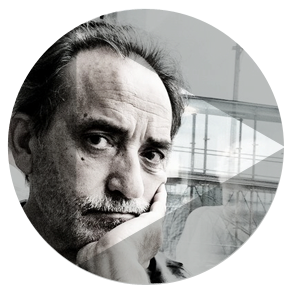
João Lafuente
João José do Coito Lafuente, graduated in Applied Mathematics from the University of Porto and has held the position of computer technician at Caixa Geral dos Depósitos bank. He has dedicated himself to photography since adolescence and had some of his works published in books and magazines. Has participated in group exhibitions and held solo and co-authored exhibitions with Manuela Matos Monteiro. Among the various exhibits produced, highlights include "Carnival in Venice", "The Harvest", "The Light of the Crystal", "Istanbul – Melancholic Itineraries", "Tropicana / Matanzas", "South of Dakar", "Istanbul and Lisbon – Melancholic Itineraries". Among other interventions it stands out the work, also co-authored, on the Douro: official photograph of the 250th anniversary of the demarcated region, exhibition on the region in Parliament ("The Douro in the Tagus" with Siza Vieira, José Rodrigues and Gracinda Candeias) in the European Parliament/Brussels, Paris, Bordeaux, Maputo and Beira (Mozambique) and in various different areas of the Douro and Porto. Co Manager of MIRA and MIRA FORUM galleries in Campanhã, Porto since October 2013, with Manuela Matos Monteiro.
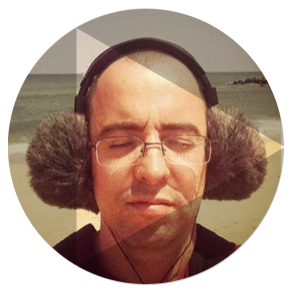
João Martins
João Martins (1977) is a musician and soundman. He has been an active figure in improvised and experimental music since 1996, with a vast array of national and international collaborations. Cooperates with the theatre company Visões Úteis (Porto) since 1998 where, in addition to working in soundtracks composition and sound design for theater plays, he also developed other performance formats in the landscape. Collaborator with a number of educational services from noted cultural institutions. Has developed, whilst working with local communities, audiowalks and audio installations where he explores the relationships between territory, collective memory and individual biographies. Attended the Music Conservatory in Aveiro, the Faculty of Architecture at Porto University and the Open University, where he completed his degree in Artistic Studies. He´s a teacher at Escola Superior de Música and Artes do Espectáculo (ESMAE-IPP) and Academia Contemporânea do Espectáculo (ACE).

José Antônio Martinuzzo
Postdoctoral degree (2014) in Media and Quotidian, Fluminense Federal University (UFF), Rio de Janeiro. Master's degree (2003) and PhD (2006) in Communication from UFF. Associate Professor of the Department of Social Communication at the Federal University of Espírito Santo. Professor of the Postgraduate Program in Communication and Territorialities. Member of the Lacanian School of Psychoanalysis of Vitória. Journalist and writer.
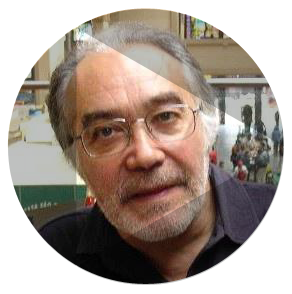
José da Silva Ribeiro
José has a doctorate in Social Sciences – Anthropology and completed higher Studies in Film and Video at the Arts School of Porto. He’s a Professor at the School of Visual Arts, University of Goiás and a Researcher at the Migration Studies Center and Intercultural Relations from the Open University, where he is responsible for the Media Research Group and Cultural Mediations. He’s conducted field work in Cape Verde and in the urban peripheries of Lisbon and Porto, Brazil, Cuba and Argentina. Co Organizer of the Viana do Castelo International Film Conference, the International Seminar Images of Culture/Culture of Images. Coordinator of the Images of Culture/Culture of Images network. Collaborator with DIVERSITAS-USP. Visiting professor at European universities and Latin America.
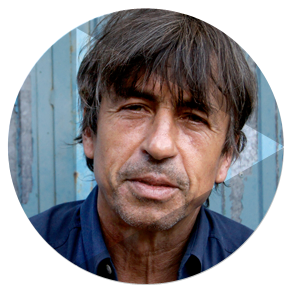
José Vieira
Film director of Portuguese origin, lives and works between Portugal and France. He has directed around thirty documentaries since 1985, namely for France2, France3, La Cinquième and Arte. His body of work, dedicated mainly to the issue of emigration, has been shown in various international film festivals. José Vieira has given visibility to the story of one million Portuguese people, who left the country in the sixties, most clandestinely - "on the hop", as it was called - in what was the largest human migration in twentieth century Europe. Born in Oliveira de Frades, he left for France in 1965, at the age of seven. His personal experience as a migrant and the many stories heard and related from other emigrants inspired his latter-day work as a director. Starting from individual stories, he traced the portrait of emigration in France, recovering an entire collective memory in the process. His documentaries are essential to understand the history of thousands of Portuguese people who sought a better life during the Estado Novo dictatorship
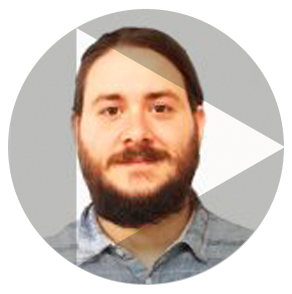
Juan Vicente Castillejo Navarro
I work freelance and wy professional field focuses mainly on audiovisual distribution, production and cultural management.
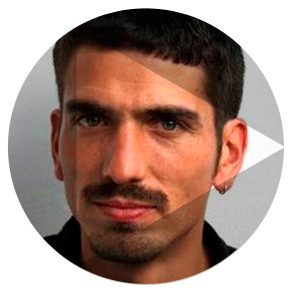
Jurek Sehrt
Studied History and Spanish in Berlin, Barcelona and Guadalajara (Mexico). Since 2007 he manages the Area of Education of the German Cinematheque – Museum of Film and Television (Deutsche Kinemathek – Museum für Film und Fernsehen), Berlin where he is responsible for the entire educational programing and has initiated several film- and media education projects. Furthermore he works as a consultant and curator for other cultural institutions and teaches as a university lecturer history, museology and media sciences (e.g. at Freie Universität Berlin, Universität Konstanz). See alsow
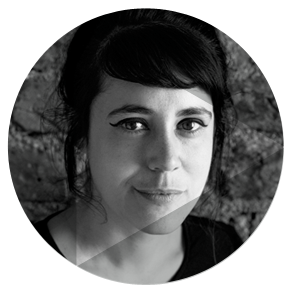
Liliana Marinho de Sousa
Was born in Germany in 1982. While completing her first studies in education with the focus on intercultural communication in 2008, she worked in the social area with deprived youngsters, women and refugees. She got into documentary filmmaking through an educational media project. In 2010 she began studying documentary cinema. “The Art of Moving” is her graduation documentary project for a German Film School.

Lisa Myllymäki
Is a 26-year-old film student based in Helsinki, Finland. Blessings is her debut documentary film, which includes her curiosity towards diferente phenomena and the world surrounding her. In addition to films, Lisa has also experience in marketing and communications.
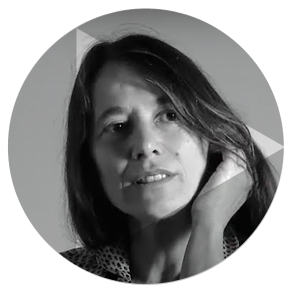
Luciana Fina
Was born in Bari (Italy) and has been working in Lisbon since 1991. After studying French and Portuguese Languages and Literature, she was initially an independent film programmer in Italy and Portugal, collaborating mainly with Cinemateca Portuguesa in the 1990s. In 1998 she made her first film documentary. Since then, while diversifying forms and strategies of creation, she’s made several documentaries and developed a body of work that often migrates from the cinematographic room to the exhibition space. She has worked intensely on the reconfiguration of the film object and its mise-en-espace, in a renewed dialectic between cinema and the arts. In 2004, she created a series of film portraits, gathered in the project "The Time of a Portrait", and presented her installations and films in Portugal, France, Sweden, Spain, Norway, Italy, Uruguay, Mexico, United States and Canada. Her last documentary, "In Medias Res", a dialogue with the thoughts and works of the architect Manuel Tainha, received an honorable mention of the Temps d'Images Film on Art Award 2014 and the national award for best film at the Architectures Film Festival of Lisbon. The debut of the film Third Floor happened at Doclisboa'16, in an official selection within the Portuguese competition.
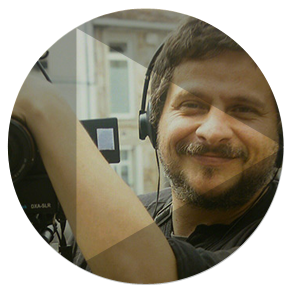
Luis Avilés
Graduted in direction and film editing at the CECC Center of Cinematographic Studies of Catalonia. Director of TV shows such as "Criaturas" and "Casado” Tvg, both leaders in their respective audience slices. Director of the short film "A Subela" (2003), chosen by the Galician Government to disseminate Galician audiovisual abroad and presented in more than a hundred festivals. Director of the film "Retorna" (Vaca Films, 2010), presented at festivals in Montreal, Valladoilid, São Paulo and Leon and winner of two awards of the Galician audiovisual (Mestre Mateo). Nominated as best director at the Galician audiovisual awards and shortlisted for the Goya award for Best New Director. Director, cameraman and editor of documentaries, music videos and various institutional and industrial jobs.
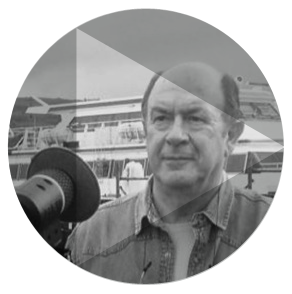
Luís Filipe Rocha
Was born in Lisbon in 1947. He graduated in Law from the University of Lisbon. He visited the theater as an actor, playwright and assistant director. In 1975 he made a few short films for television and in 1976 directed the feature film "Barronhos – quem teve medo do poder popular", a documentary that reconstructs a crime in a shanty town during the hot summer of 1975. Soon afterwards he made the film "A Fuga", with the participation of Luís Alberto, the director signing the screenplay in co-authorship with Arnaldo Aboim. In 1979, he filmed "Cerromaior", based on the emblematic work of Manuel da Fonseca, which starred actor Carlos Paulo. In 1983/84, he performed "Sinais de Vida", a film about the life and work of Jorge de Sena, with Luís Miguel Cintra, Costa Ferreira and Clara Joana in the main roles. In 1990 he made "Amor e Dedinhos de Pé", an adaptation of the work of the Macanese writer Henrique da Senna Fernandes, with Joaquim de Almeida and the Spanish actress Ana Torrent in the main roles. In 1994 he filmed "Sinais de Fogo" (based on the namesake book by Jorge de Sena), with Diogo Infante as protagonist. The screenplays of the two films are shared with the Brazilian Izaías Almada. "Adeus, Pai", of 1996, with the actors José Afonso Pimentel and João Lagarto was his work with a greater impact to the public. "Camarate", a film dating back to 2000, features Maria João Luís. In 2002 he filmed "A Passagem da Noite", with Leonor Seixas, one of the most awarded Portuguese films in international festivals. "The Other Side" of 2007, with Filipe Duarte, Maria d'Aires and Tomás Almeida, is his latest work to have had a remarkable journey in festivals around the world.
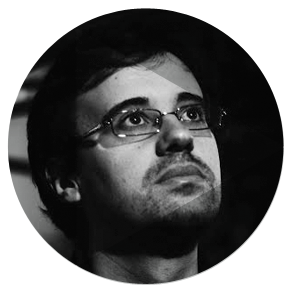
Luís Mendonça
Doctorate in Communication Sciences, Faculty of Social Sciences and Humanities, Universidade Nova de Lisboa (FCSH / NOVA), under the guidance of Professor Margarida Medeiros. Master's degree in the same field by the same faculty, in the specialty of Cinema and Television, under the guidance of Professor João Mário Grilo. Lecturer within the scope of Free Courses designed by himself in collaboration with colleagues in the field of film and photography. He has written several articles and participated in a number of colloquiums on cinema, photography and philosophy of the image. Organizer of film cycles and debates. Director of videos, audio-visual essays and the short film Lugar / Vazio (2010). Luís published this year the book Photography and Modern Cinema: The Amateur Filmmakers of the Post-War (2017, ed. Colibri).
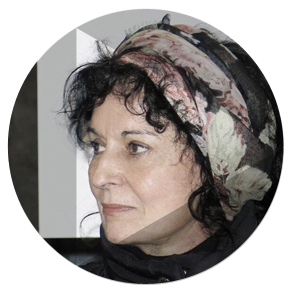
Manuela Matos Monteiro
Manuela Matos Monteiro has a background in Philosophy and Psychology and is the co-author of books on PsychoSociology, Psychology and author of books on Pedagogy and Design methodology among others (ed. Porto). Edited the magazine 2: POINTS for several years and coordinated the NetProf website. She’s had a keen interest in photography for many years, displaying her work in collective and individual exhibitions. Her art has been recognized through awards obtained in various photography contests, including 1st prize in the international competition "La femme et la vigne". Her work has been published in several books and magazines. Among the different interventions one can highlight the work co-authored with João Lafuente on the Douro. Since 2011, she’s been developing experiences with a Smartphone exploring the device capabilities for capturing and editing of photos. Had some of her work selected and exhibited in Los Angeles, Kansas City, Miami, Tokyo, Berlin, Florence, and Verona among others. Held two solo exhibitions: at the Montalegre Ecomuseum (2012) and the "Contemplation" exhibition at House Museum Abel Salazar (December 2014). One of her "Self(ie) evidence" got 1st prize in the self-portrait category at the MPA 2014 competition, the most prestigious award in mobile photography. Co Manager, with João Lafuente, of MIRA and MIRA FORUM galleries in Campanhã, Porto.
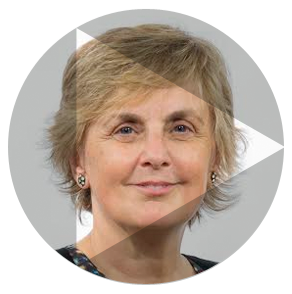
Paula Godinho
Paula Godinho is an anthropologist (Department of Anthropology and Institute of Contemporary History of FCSH-UNL). She has carried out fieldwork over several years in Portugal, the border and in Galicia, on social reproduction, rituality, resistance and social movements, memory usages and heritage practices, processes of emblematization and commercialization of culture, topographies of power and bordering cultures. She published and coordinated several works and commissioned the exhibition "Between Margins - The Treaty of Boundaries of 1864 between Portugal and Spain" at Torre do Tombo (2014-2015). Winner of the Xesús Taboada Chivite Award (2008, Galicia) and Honorary Judge awarded by the Association of Friends of Couto Mixto (Galicia, 2011).
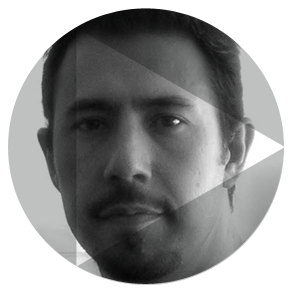
Paulo Oliveira Fernandes
Paulo Oliveira Fernandes (1979, Portugal). Primary and secondary school teacher. Developed an interested in animation from an early age and began frequenting the CINANIMA Festival at the beginning of the millennium. In 2004, attended the Animation course in free drawing technique by Casa da Animação in Porto, under the guidance of Jorge Ribeiro and Daniela Duarte. Meanwhile he has already oriented the production of dozens of animated films in various educational contexts, some of them awarded within the category. Paulo has been linked to the organization of CINANIMA - Espinho International Animation Film Festival since 2010.
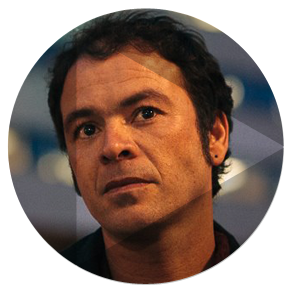
Pedro Neves
was born in Leiria in 1977. He has been a documentary filmmaker and freelance journalist since 1999. He studied in Porto, where he completed a postgraduate and a master's degree in Culture and Communication, documentary variant, with a dissertation about documentarism in the years of the April Revolution. In 2007 he attended a documentary course at the International School of Cinema and Television in San Antonio de los Baños, Cuba. In 2008 he founded the Red Desert Films production company. He won nine awards with the films he directed. They were shown on RTP, Plus France channel, Plus Afrique channel and TVcine and entered the competition in more than 40 national and international festivals such as Clermont-Ferrand, Guadalajara, Doclisboa, Documenta Madrid, Curtas Vila do Conde, São Paulo Short Film Festival, Porto Post Doc, Thessaloniki Festival, and CPH: dox, among others. Of his filmography, the most notable are the documentaries "A Olhar o Mar" (89', 2007), "En la Barberia" (6', 2007), "Os Esquecidos" (63', 2009) "Água Fria" (14', 2011), "A Raposa da Deserta" (85', 2014) and "Hospedaria (20', 2014). In 2014 he completed the documentary "Acima das Nossas Possibilidades" (43'), integrated in Project Troika and, with Boaventura Sousa Santos, made the short film "Conversas do Mundo". In 2015 he produced and directed the film "Bairrismos" (61'). Already in 2016 he made the short documentary "A Praia" and the long "Tarrafal".
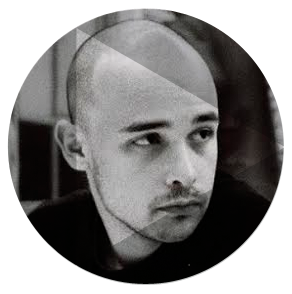
Ricardo Vieira Lisboa
Born in Lisbon in 1991. Master's Degree in Applied Mathematics and Computing (from Instituto Superior Técnico) and Cinema in the field of Directing and Dramatization (by Escola Superior of Theater and Cinema) with a dissertation entitled "The Cinematographic Restoration as Re-choreography, the case of Three Days without God" by Barbara Virginia. Guest programmer of short films at IndieLisboa - Lisbon International Film Festival since 2013, and a film critic on À pala de Walsh's website, which he co-founded, coordinates, co-edits and is one of its main editors. He has produced communication papers and academic articles in the fields of Portuguese cinema history and restoration and cinematographic preservation, as well as programs dedicated to the new names of national cinema, participated in several cycles and round tables and invigorated countless discussion sessions. As a filmmaker, Ricardo produced and directed experimental short films and video, among them Le métro, Vieira da Silva (2016), Children, Madonna and Child, Death and Transfiguration (2016) and Blue Cigarette (2017), which were shown at domestic and international festivals
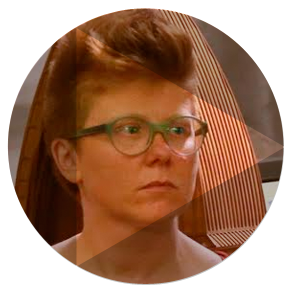
Roberta Zendrini
Works as Media Educator in the Educational Department of the National Cinema Museum in Turin since 2008. She got an academic degree in Cinema at the University of Turin in 2006. In 2008 she started working on the European projects MAP for ID (Museums as places for Intercultural Dialogue) and LEM (The learning museum project). In 2015 she projects The City I Like, a media education context for young video-makers. Nowadays she is involved in the Museum’s educational video-making projects related to accessibility to cultural heritage.
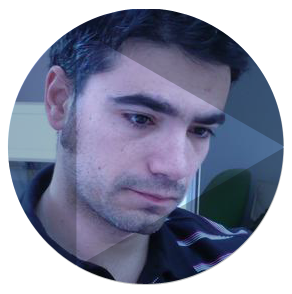
Rodrigo Areias
Graduated in Sound and Image at the School of Arts and specialized in Image. He also attended a film direction course at NYU’s Tisch School of Arts, and the Eurodoc production training program. Throughout his career, Rodrigo Areias has developed creative works in the fields of author cinema, fiction and documentary. He has also worked in the realm of video-art and has directed video clips for some of the biggest names in the Portuguese rock scene (The Legendary Tiger Man, Wraygunn, Mão Morta, etc.), among other projects. As a producer his career started in 2001 and since then has produced and co-produced over 100 short and feature-length films, videos and documentaries. Producer of renowned authors such as Edgar Pêra, João Canijo and F.J. Ossang, and young directors such as André Marques, João Rodrigues and Jorge Quintela, alongside co-producing with Brazil, UK, France, Germany, Japan and Finland. As a director, among many films, Tebas (feature film) and Corrente (short film) stand out, having been selected for over 50 international festivals and won over a dozen awards. He was responsible for the film production program of Guimarães 2012 European Capital of Culture which included films by Jean-Luc Godard, Aki Kaurismaki, Peter Greenaway, Manoel Oliveira, Pedro Costa and Victor Erice.
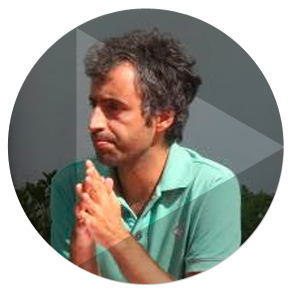
Rodrigo Francisco
Is the general coordinator of the Viseu Film Club, responsible for financial and program planning and a board member since 2001. Responsible for the project Cinema for Schools, initiated in 1999, highlighted at national level as one of the most consistent in the areas of training of new audiences for cinema and audiovisual. Higher education in the fields of Social Communication and Audiovisual Communication (Polytechnic Institute of Viseu and Faculty of Social Sciences, University of Salamanca), Post-graduation in Programming and Cultural Management at the Polytechnic Institute of Porto (2003).
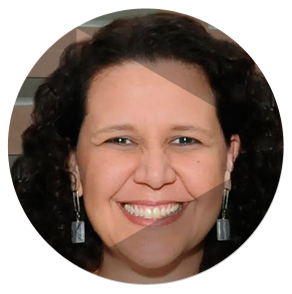
Rosane Zanotti
Professor of the Department of Social Communication at the Federal University of Espírito Santo (UFES) since 2005. Researcher of the groups Mediated Society and Contemporary Communications Practices / UFES, Laboratory of Communication and Quotidian - ComC / UFES and Laboratory of Studies in Creativity and Trends - LECET / UFES. Graduated in Social Communication - Advertising and Propaganda by UFES (1994). Master in Design by PUC-Rio (2005). PhD in Design from PUC-Rio (2013) with an 11-month intermediate doctorate (2011/2012), held with a CAPES scholarship at the Laboratory of Visual Anthropology / CEMRI, Open University (Portugal). Fields of practice and research themes: photography; contemporary communication technologies; media, quotidian and sociabilities.
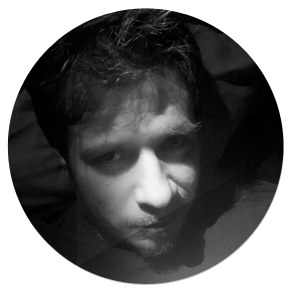
Rubén Pardiñas
Rubén Pardiñas (Vigo, 1976) wrote the screenplays and directed the documentaries "Lo más profundo es la piel" (2004), Fronteiras (AvidHoc Award at the II International Documentary Festival of Tui Play-Doc 2006), A terceira póla (2008) and La mirada del Pintor (2012). Rubén is the author of the following test books: Emancipació, de que? Una visió pragmatista de l'art contemporani (2001) and Seamos serios, pero no tanto. Arte, filosofía y la persistencia de lo sublime (2004).
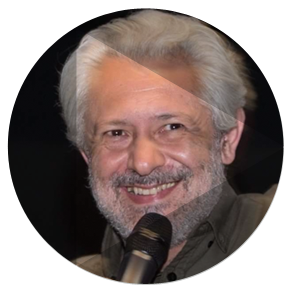
Sérgio Rizzo
Journalist, master’s degree in Arts/Cinema, with a dissertation on Woody Allen, and a doctorate in Media and Audiovisual Processes, with a thesis on the formation of teachers for an audiovisual education, from the School of Communications and Arts of the University of São Paulo. He is a presenter for the TV channel Arte 1, collaborator with the newspapers "O Globo", "Valor Econômico" and "Folha de S. Paulo", and publications in the field of education, such as "Mundo" newspaper and "Carta Educação". Professor at FAAP and PUC-SP, at the International Academy of Cinema, the Augusto Laranja College, the Museum of Image and Sound, Casa do Saber, the Itaú Cinema Space and at Sesc-SP units.Sérgio is a member of the Selection Committees at É Tudo Verdade – the International Documentary Festival and the International Film Festival of São Paulo. He is also a member of the Ignorant Essays project, which combines theater and reading activities and develops projects as executive producer for the Parece Cinema production company. Author of the books "Cinema e Educação - 200 Films on School and Life" (Ed. Segmento), "Família e Educação - Quatro Olhares" (Ed. Papirus) and "Vitória - Ayrton Senna" (Ed. Melhoramentos), as well as several participations in Anthologies – like “Cinema and Psychoanalysis" (Ed. nVersos), "Os Filmes que Sonhamos" (Lume), "Futebol, Comunicação e Cultura" (Unesp/Intercom), "Coleção Folha Clássicos do Cinema" (Letramento/Abraccine/ Canal Brazil) - and in catalogs of exhibitions and retrospectives dedicated to filmmakers such as Ingmar Bergman, Woody Allen, Stanley Kubrick, Quentin Tarantino and the Dardenne brothers.
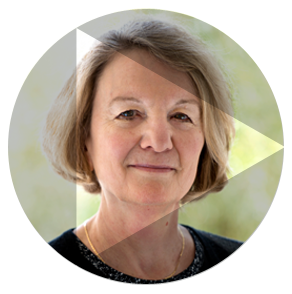
Sue Williams
Formed Ambrica Productions to produce documentaries of international scope and interest. Contemporary China, which features prominently in Death by Design, has always been a special focus for her. She wrote, produced and directed the six-hour china trilogy – China in Revolution, the Mao Years, and Born under the Red Flag – which explored the turbulent social and political history of 20th Century China. All aired as national specials on PBS to great critical acclaim and have been broadcast in over 25 countries. Sue also directed two highly praised biographies - Eleanor Roosevelt and Mary Pickford -- for the PBS series, American Experience. Her films have appeared in festivals around the world and won numerous awards, including the Cine Golden Eagle, International Film & Video festival awards, Chris Awards, and two Edgar Dale awards for best screenwriting.
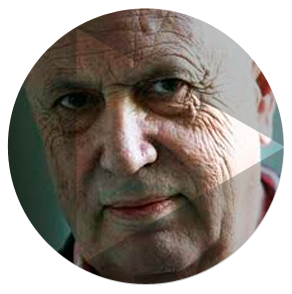
Xosé Luís Méndez Ferrín
Xosé Luís Méndez Ferrín (Ourense, 1938). PhD in Philology and Professor of Literature. Outstanding political and cultural writer and activist. Poet, novelist and essayist. He is considered nowadays as one of the great European writers and intellectuals. Former President of the Galician Royal Academy. Xosé was proposed to the Nobel Prize of Literature in 1999 by the Association of Writers in Galician Language for Um Arraiano in Gallaecia.